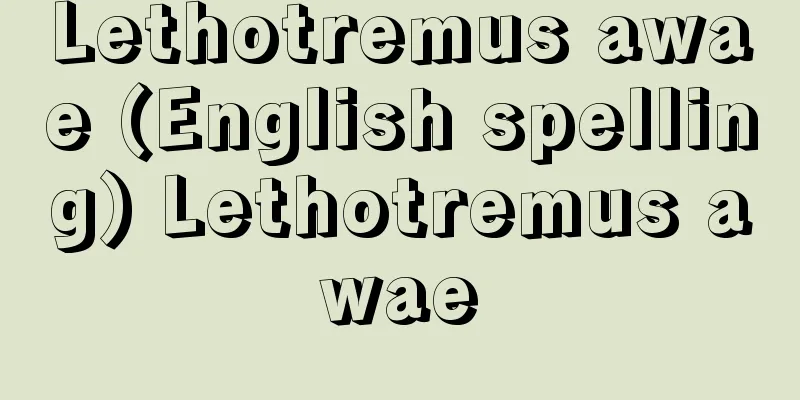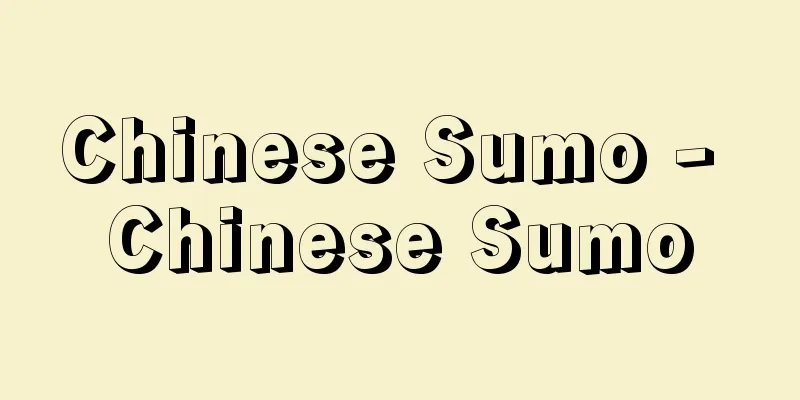Local silver

|
A land tax in the Qing dynasty of China. It is also called denpu (field tax). The Qing dynasty also had customs duties, salt taxes, and miscellaneous taxes, but these were all indirect taxes, and the only direct tax was jitinggin. The Qing dynasty inherited the two-pronged tax system of jigin and chogin from the Ming dynasty, but the poll tax of chogin (tax on young dynasties aged 16-60) became difficult to collect due to various contradictions, such as the abuse of exemption privileges by the bureaucracy, the cheating of the number of chogin by wealthy landowners, and the increase in non-payment by poor peasants. In 1713, the Shengshi Zhisheng Renting was established to fix the amount of chogin and chogin, and in 1716, Guangdong Province decided to collect chogin as an additional tax on jigin, and jitinggin was established in each province one after another in the 1720s. However, it was implemented late in Taiwan in the 1740s and in Guizhou Province in the 1770s, and was not implemented in some areas of Shanxi Province until the end of the Qing Dynasty. There were various methods for adding chogin to local silver, but the general method was to add a small amount of chogin for every 1 tael of local silver. The establishment of the chogin further solidified the trend of paying taxes in silver that had existed since the Ming Dynasty, and the abolition of the poll tax, a traditional tax from ancient China, is of great historical significance. [Kitamura Yoshinao] Source: Shogakukan Encyclopedia Nipponica About Encyclopedia Nipponica Information | Legend |
|
中国、清(しん)朝の土地税。田賦(でんぷ)ともいう。清朝の租税はほかに関税、塩税、雑税があるが、これらはすべて間接税で、直接税は地丁銀だけであった。清朝は明(みん)代の地銀、丁銀二本立て租税を引き継いだが、人頭税である丁銀(16~60歳の壮丁に課税)は、官僚層の免除特権の乱用、富裕地主の丁数ごまかし、貧困農民の未納増加などの諸矛盾から、その徴収が困難となった。そこで1713年から盛世滋生人丁(せいせいじせいじんてい)を設けて丁額、丁銀額を固定化し、16年広東(カントン)省において丁銀を地銀の付加税として合併徴収することとしたのを最初として、1720年代に各省の地丁銀が次々に成立した。ただ台湾は1740年代、貴州省は1770年代と遅れて実施され、山西省の一部地方は清末まで実施されずに終わった。丁銀を地銀に付加する方法はさまざまであるが、一般的には地銀1両につき丁銀若干を上乗せする方法がとられた。地丁銀の成立によって、明代以来の租税銀納の趨勢(すうせい)がいっそう徹底するとともに、中国古来の伝統的租税であった人頭税が消滅したことの歴史的意義は大きい。 [北村敬直] 出典 小学館 日本大百科全書(ニッポニカ)日本大百科全書(ニッポニカ)について 情報 | 凡例 |
<<: Earth current - Chidenryu (English spelling) Induction current
Recommend
Bivalve mollusks - Nimai Ii
A class in the phylum Mollusca. Many of the bival...
Umayasaka Palace
The imperial palace of Emperor Jomei was located i...
Time bomb - Jigenbakudan (English spelling) time bomb
A bomb with a mechanism that explodes a certain t...
Auto - Auto
…Folk songs can be divided into two contrasting s...
Sibylline Oracles
The title of a book included in the Old Testament ...
Praise of Folly - Chigushinraisan
A book by Erasmus. Original title Moriae encomium,...
Symbolic Voting - Symbolic Voting
A method of voting in an election. You vote by put...
Responsibility - Responsibility
When a human action is free and the cause of the ...
Ludwig der Fromme
…reigned 814-840. Also known as Ludwig the Pious ...
Reverse - Sakau
[1] (Self-Ha 4) ① To turn one's back on someon...
Red rose - Red rose
...Also, yellowtails are called yellowtails becau...
Night watch - yakei (English spelling)
Rembrandt's 1642 work, now in the collection o...
Keith-Flack knot
…The sinoatrial node determines the overall rhyth...
Dreikönigtag (English spelling)
…The 28th is the Day of the Innocent Child, when ...
Long Live Kaga - Kaga Manzai
...It is said that Manzai was performed at the Im...







![Yunotani [Village] - Yunotani](/upload/images/67cd14c8e9f26.webp)

